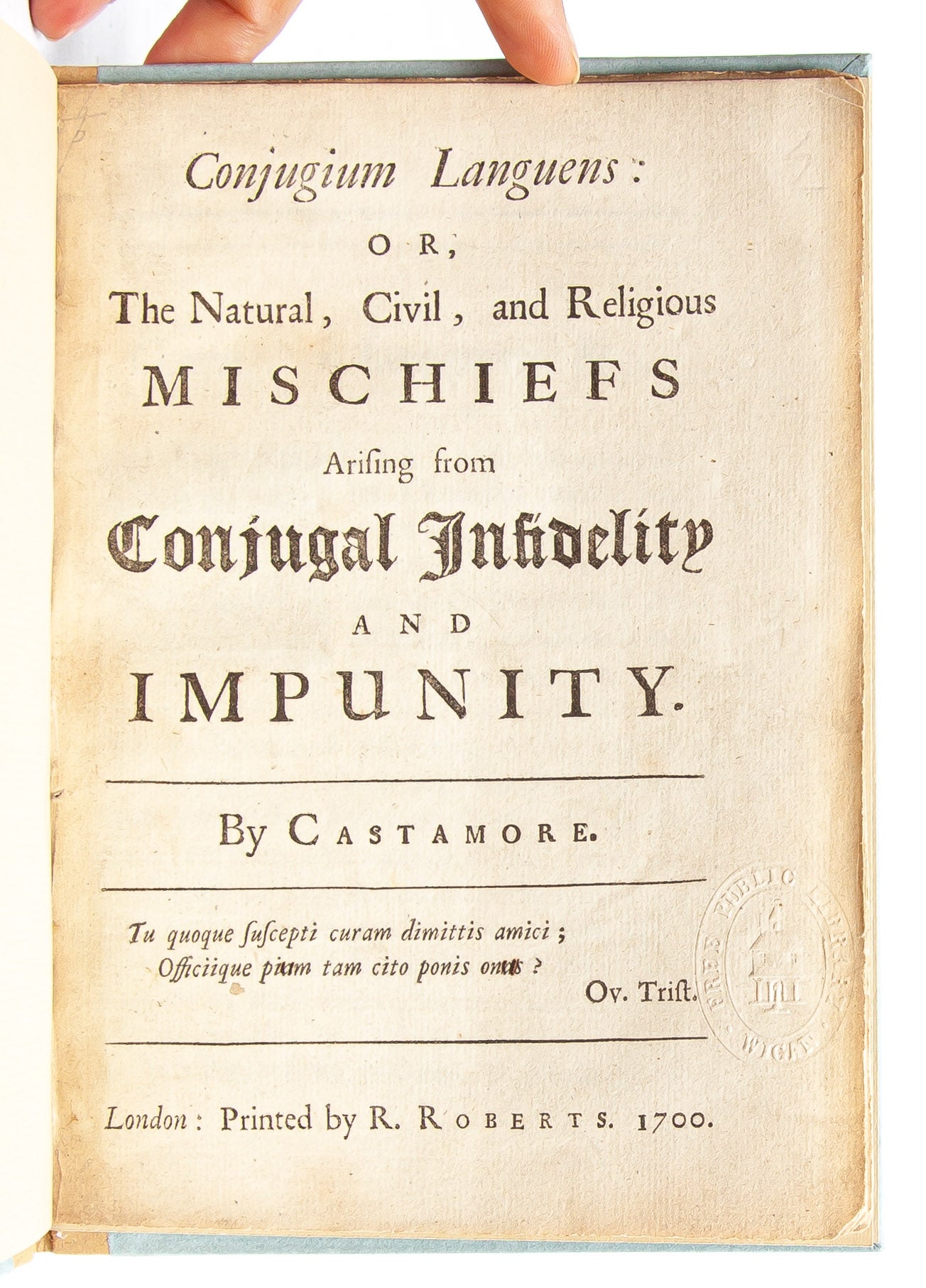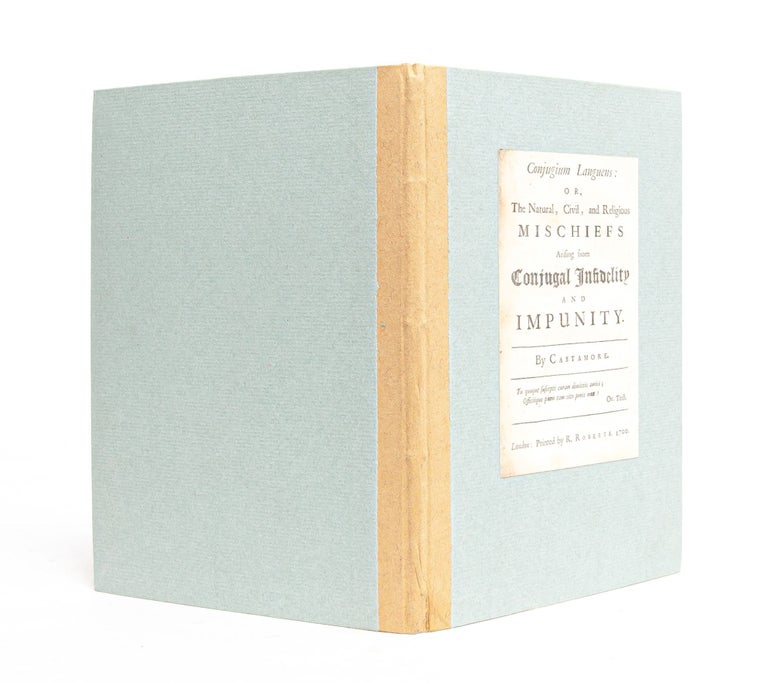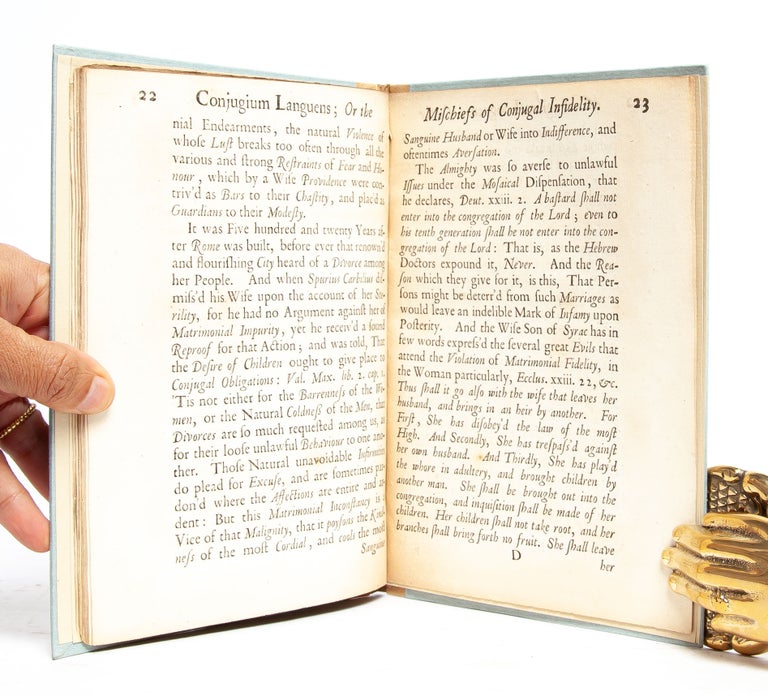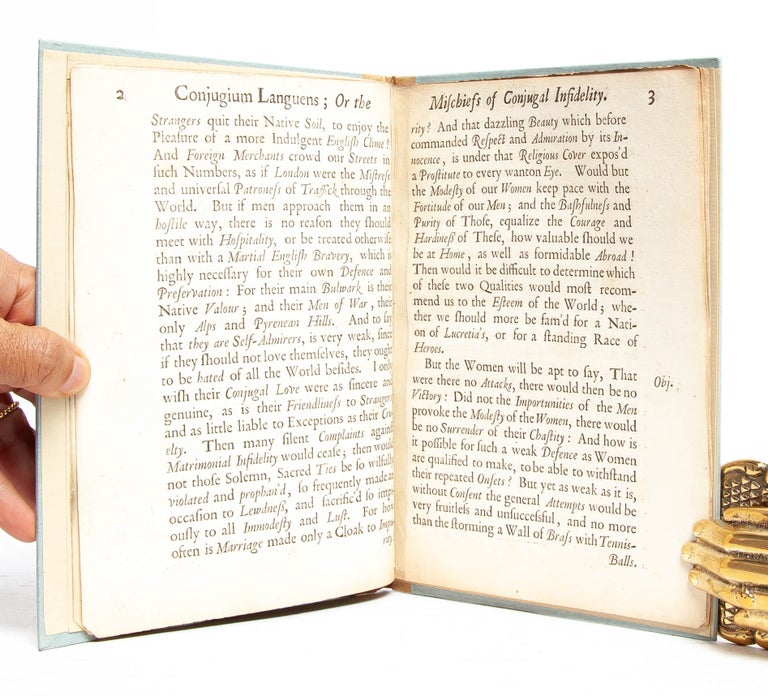Conjugium Languens: Or, The Natural, Civil, and Religious Mischiefs Arising from Conjugal Infidelity and Impunity
London: R. Roberts, 1700.


Conjugium Languens: Or, The Natural, Civil, and Religious Mischiefs Arising from Conjugal Infidelity and Impunity
London: R. Roberts, 1700. First edition. Rebound in modern drab boards with facsimile of title page to front cover. Measuring 190 x 135mm and collating [2], 28: bound without rear blank, else complete. Discreet marginal blindstamps of Wigan Free Public Library to the first two leaves, and final leaf Small hole to outer margin of pages 1-2 not affecting text; gutters of leaves A2 and A3 archivally strengthened. A clean copy internally, with the only markings being a contemporary effacement of Charles II's initials to page 19. A scarce work institutionally and in trade, ESTC reports copies at only 9 U.S. libraries. The most recent copy to appear at auction was the present one, in 1948; prior to that, the only copies appearing in the auction record are dated 1933, 1930, and 1903.
A predecessor to Daniel Defoe's infamous treatise Conjugal Lewdness: Or, Matrimonial Whoredom (1727), Castamore's Conjugium Languens tackles questions of marital infidelity that are more systemic than individual. At the time of publication, Canon Law prevailed in England, which meant that "marriages could easily be entered into, but divorce was obtainable only by an Act of Parliament" (Smith). The number of undesirable clandestine marriages among young people and marriages designed and enforced by families rather than the couples themselves combined to generate a large population of people dissatisfied at best and abused or miserable at worst in their unions. Without the option of legal divorce, infidelity was widespread. For Castamore, there is a simple solution which the government should undertake to preserve the sanctity of existing marriages as well as to ensure the purity of the resulting lines of inheritance: new laws "as might render Divorces less chargeable and difficult than they now are."
Among the forms of infidelity rampant during the period was engagement in or with the sex trade. Difficult to document due to the variety of forms it could take, sex work offered many women and queer people options for supplementing existing income or finding lucrative full time employment. "Although London police reports recorded there to be approximately 8,600 prostitutes known to them, it has been suggested that the true number during this time was closer to 80,000" (Rogers). The rising celebrity of courtesans during this period provided men like those Castamore discusses with not only the possibility but also a glamorous fantasy of participating in sex outside their marriages -- sex that was not limited to the procreative unions sanctioned in sacrament. Meanwhile, women might perform sex work formally as courtesans or in a brothel; but more often, the work was informal and resembled the type of infidelity (here, infidelity for pay) that Castamore fears. It is upon women, the faces of the trade, that Castamore places blame. Pushing against anti-feminist notions of weak feminine virtue being susceptible to "the Importunities of Men," he takes an alternative misogynist approach by blaming women for those attacks and accusing them of harboring "a Treacherous Passion to yield Amorous Glances and Insinuations." Women, like imperialised nations, he asserts, ask for their own domination. It is a notion that the most famed courtesans would go on to combat further into the century, developing the genre of the Scandalous Memoir to expose how the assaults of men led so many of them into the trade.
Wildly conservative and yet progressive in its assertion that the dissolution of marriage should be possible, Conjugium Languens laid the groundwork for future tracts on marriage and sexuality that helped move these unions out of Church control and into the realm of secular law.
Register of Erotic Books 758. (Item #5220)





